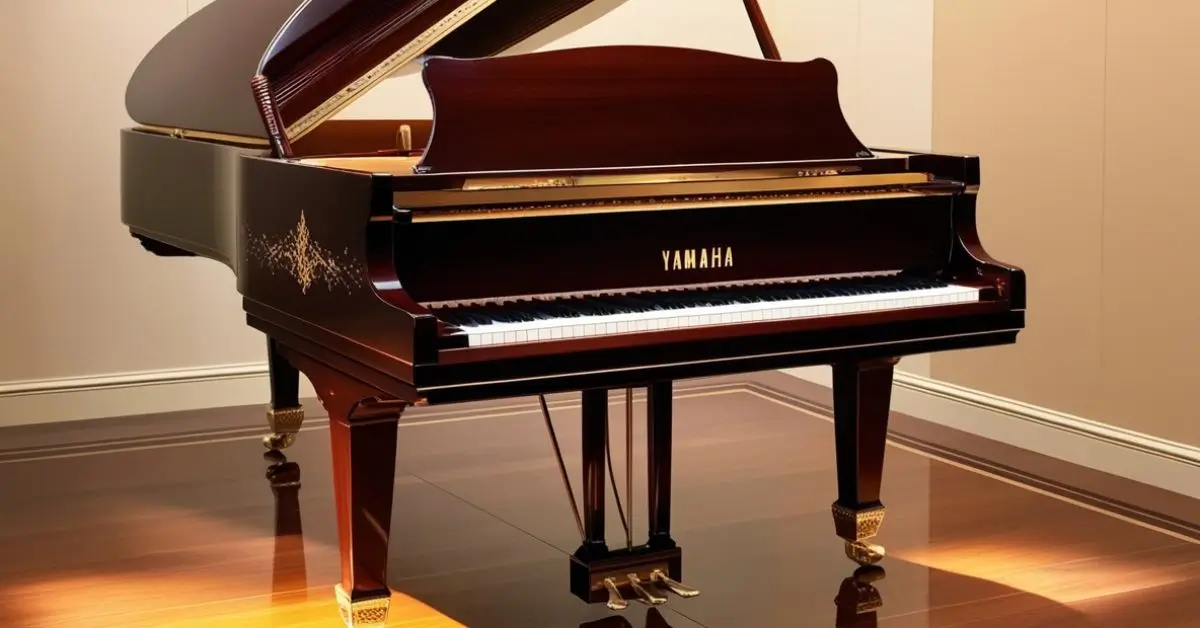Yamaha, a name synonymous with innovation and quality in the world of musical instruments, has been a leading manufacturer of pianos for over a century. Founded in 1887 by Torakusu Yamaha in Japan, the company began as a reed organ manufacturer before expanding into the production of Yamaha Piano in 1900. Today, Yamaha pianos are renowned for their exceptional craftsmanship, innovative technology, and unparalleled sound quality, catering to musicians of all skill levels, from beginners to concert pianists.
This article delves into the history, features, innovations, and varieties of Yamaha pianos, showcasing why they remain a top choice for musicians worldwide.
A Brief History of Yamaha Pianos
Yamaha began its journey in piano manufacturing in the early 20th century. The company’s first upright piano was produced in 1900, and the first grand piano followed in 1902. These initial models laid the foundation for Yamaha’s enduring reputation for precision and quality.
Global Expansion
In the mid-20th century, Yamaha pianos gained recognition globally. The company introduced its instruments to international markets, quickly becoming a favorite among musicians due to their reliability and consistent quality. In 1967, Yamaha introduced the CF series, a groundbreaking line of concert grand pianos, earning the brand international acclaim.
Innovation and Excellence
Over the decades, Yamaha has continually improved its piano-making techniques. From incorporating modern materials to introducing digital pianos, Yamaha has maintained a balance between tradition and innovation. The company’s ability to adapt to the needs of contemporary musicians has ensured its continued relevance in a competitive industry.
Features That Define Yamaha Pianos
Yamaha pianos are celebrated for their exceptional features that cater to both traditional and modern preferences. Here are some standout characteristics:
1. Superior Craftsmanship
Every Yamaha piano is crafted with meticulous attention to detail. The company uses high-quality materials, including spruce for soundboards and robust metal frames, ensuring durability and excellent tonal quality.
2. Consistent Sound Quality
Yamaha pianos are known for their bright, clear tones. This sound profile appeals to a wide range of musicians, from classical pianists to jazz players. Advanced voicing techniques and precise string placement contribute to their consistent sound.
3. Innovative Technology
Yamaha is at the forefront of integrating technology into piano design. From hybrid models that combine acoustic and digital features to silent pianos that allow for private practice, Yamaha caters to diverse musician needs.
4. Durability
Designed to withstand varying climates, Yamaha pianos are built with durability in mind. The company employs advanced engineering techniques to ensure that their instruments remain in optimal condition even in challenging environments.
5. Wide Range of Models
Yamaha offers an extensive lineup of pianos, including upright, grand, and digital models. This diversity ensures that every musician, regardless of skill level or budget, can find a Yamaha piano that suits their needs.
Types of Yamaha Pianos
Yamaha pianos are categorized into three primary types: acoustic, digital, and hybrid. Each type is designed to cater to specific musical requirements.
1. Acoustic Pianos
Acoustic pianos are Yamaha’s cornerstone, embodying traditional piano craftsmanship.
- Upright Pianos: These space-saving models are ideal for homes, schools, and studios. Yamaha’s U Series is particularly popular for its balance of quality and affordability.
- Grand Pianos: Ranging from baby grands to concert grands, Yamaha’s grand pianos are a symbol of elegance and superior sound. The CFX concert grand piano is a flagship model, revered for its rich tonal depth and projection.
2. Digital Pianos
Yamaha’s digital pianos are designed for modern musicians who seek versatility and convenience. They offer realistic sound and touch, thanks to advanced sampling technology and weighted keys.
- Clavinova Series: The Clavinova series offers authentic acoustic piano experiences with the benefits of digital technology, such as recording features and multiple voices.
- Arius Series: Known for its affordability, the Arius series is perfect for beginners and hobbyists looking for a reliable digital piano.
3. Hybrid Pianos
Yamaha’s hybrid pianos blend the best of acoustic and digital features, offering unparalleled flexibility.
- AvantGrand Series: These pianos feature acoustic piano action with digital sound, making them ideal for those who want a traditional feel without the need for tuning.
- Silent Pianos: Silent pianos allow players to switch between acoustic and silent modes, enabling private practice with headphones.
Yamaha’s Technological Innovations
Yamaha’s dedication to innovation has revolutionized the piano industry. Here are some of the groundbreaking technologies they have introduced:
1. TransAcoustic Technology
Yamaha’s TransAcoustic pianos use the piano’s soundboard as a speaker, allowing for rich, natural sound without external amplification. This technology is a game-changer for musicians who need versatility in performance and practice.
2. Disklavier Pianos
Disklavier pianos combine traditional piano features with advanced recording and playback technology. These pianos can record a performance and play it back with precision, making them invaluable for educational and performance settings.
3. Virtual Resonance Modeling (VRM)
VRM technology accurately replicates the complex interactions between strings and soundboard in an acoustic piano, delivering a realistic and expressive sound in digital models.
Why Choose a Yamaha Piano?
Choosing a Yamaha piano means investing in quality, reliability, and innovation. Here are key reasons why Yamaha is a top choice:
- Unmatched Reputation: With over a century of expertise, Yamaha is a trusted name in the piano industry.
- Wide Selection: From beginner-friendly models to professional concert grands, Yamaha caters to all skill levels and budgets.
- Cutting-Edge Technology: Yamaha consistently incorporates advanced technology to enhance the musical experience.
- Global Support: Yamaha’s extensive network ensures access to maintenance and support services worldwide.
Caring for Your Yamaha Piano
Proper maintenance is essential to ensure the longevity of your Yamaha piano. Here are some tips:
- Regular Tuning: Acoustic pianos should be tuned at least twice a year to maintain optimal sound quality.
- Climate Control: Keep your piano in a stable environment, avoiding extreme humidity or temperature fluctuations.
- Cleaning: Use a soft cloth to clean the keys and cabinet. Avoid using harsh chemicals.
- Professional Servicing: Schedule regular checkups with a qualified technician to address any mechanical issues.
Famous Yamaha Piano Artists
Yamaha pianos have been the instrument of choice for many renowned musicians, including:
- Elton John: The legendary musician has used Yamaha grand pianos in his performances for decades.
- Alicia Keys: Known for her soulful music, Alicia Keys collaborates with Yamaha for her performances and recordings.
- Chick Corea: The celebrated jazz pianist has praised Yamaha pianos for their expressive range and reliability.
Conclusion
Yamaha Piano are more than just musical instruments; they are masterpieces of engineering and artistry. Whether you are a beginner exploring the joy of music or a professional seeking the ultimate concert experience, Yamaha offers a piano to meet your needs. With a rich history, innovative technologies, and a commitment to excellence, Yamaha continues to inspire musicians worldwide.
Investing in a Yamaha piano is not just a purchase but a lifelong journey into the world of music, supported by one of the most trusted names in the industry.











